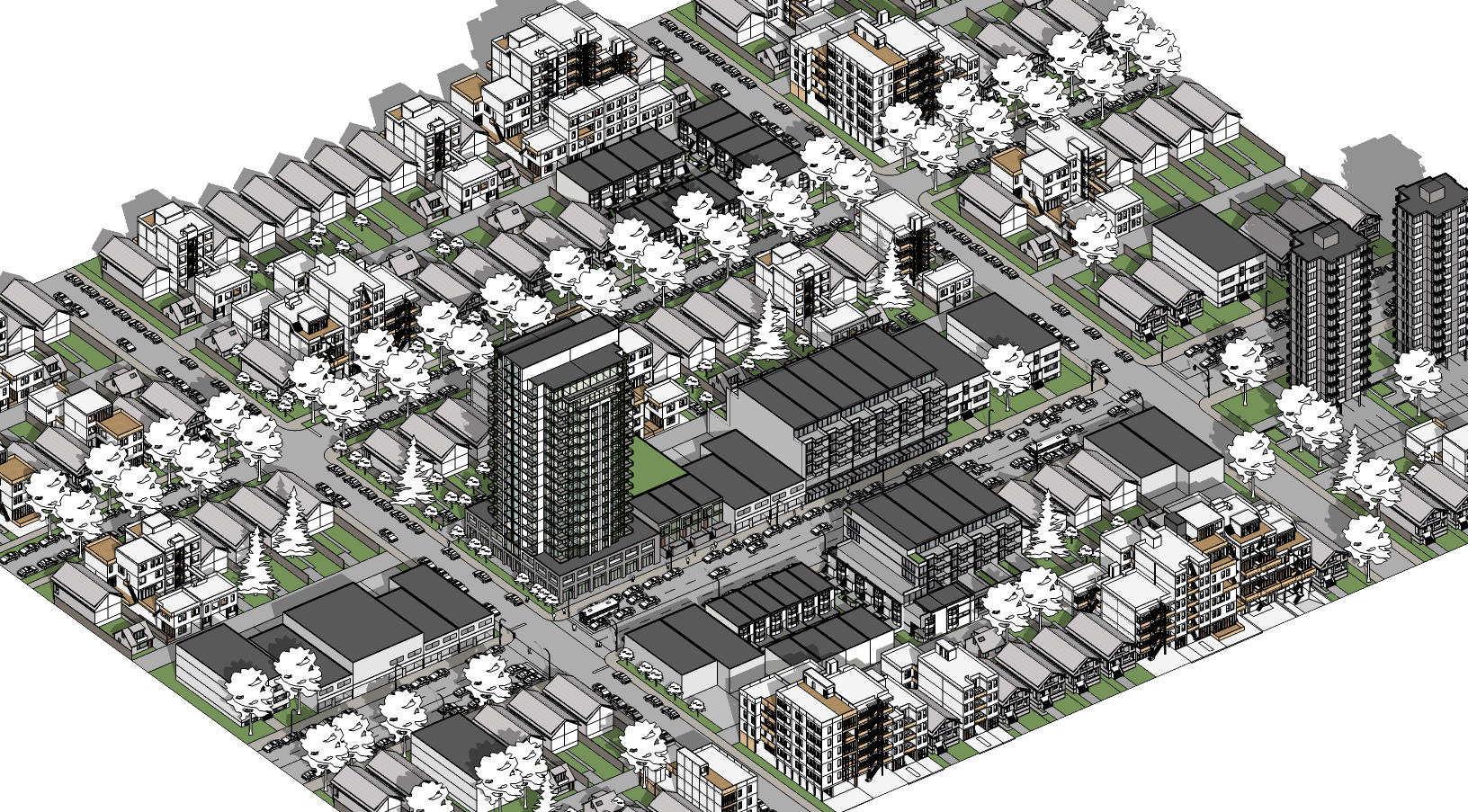
Of the thesis entitled: Domestic Insurgency | Toward Affordable Housing in Vancouver
Vancouver’s
ongoing
housing
crisis
has
decoupled
dwelling
prices
from
local
income
through
investment
oriented
dwelling
typologies
and
restrictions
on
land
availability.
Vancouver,
as
one
of
the
first
North
American
cities
to
reach
a
post-sprawl
condition,
must
correct
policy
and
land
use
to
acknowledge
changes
in
dwelling
preferences,
demographics,
and
land
value
to
provide
a
housing
supply
strategy.
Following the rewriting of contradictory policy that is currently misaligned with the goal of affordability, the thesis proposes a housing framework for the private sector to profitably build dwellings suitable for a range of local incomes. The framework targets Vancouver’s most prominent, repetitive, and artificially underused land, its low density house neighbourhoods, to resurrect a middle density housing typology to respectfully transition neighbourhoods to affordable dwellings. Using a three pronged approach of neighbourhood improvement, flexible design for occupant control, and a focus on sharing, dwellings are drastically reduced in cost due to efficient space and material planning while simultaneously increasing living benefits to building inhabitants and its existing neighbours. Traditional thresholds at the dwelling and building scales are reimagined to support smaller living spaces and urban development in established neighbourhoods. These thresholds create new co-dependent, beneficial relationships and dynamically mitigate frictions, rather than eliminate them altogether. Ultimately, the framework provokes a wave of disruption in the housing market, where alternative living arrangements in the form of co-living apartment models and a wider spectrum of dwelling prices are mass produced, reinstating affordability as a key facet in the living standard formula governing housing design. The disruption would challenge homogeneous condominium construction to adapt a new competitive housing segment, shifting the focus from investment to human capital.
The framework is an insurgent force that provides affordable housing through the private sector despite distorted high property costs, using existing property and economic mechanisms to create an alternative competitive affordable housing type. It is also an insurgency within the built fabric of the city, inserting itself within established neighbourhoods currently fortified against change and in progressing ideas of co-living and participatory design. Through efforts to improve neighbourhoods for existing residents and a focus on the inhabitants, the insurgency reduces opposition to new development, thereby securing a predictable and sustainable supply of housing for the long term. Over time, it is the ambition of this proposal to reach a critical mass in which the influence of the new housing segment reduces housing prices for all dwellings, restoring affordability within the entire city.
Supervisor:
Adrian Blackwell, University of Waterloo
Committee Members:
Andrew Levitt, University of Waterloo
Val Rynnimeri, University of Waterloo
External Reader:
Matthew Soules
The
committee
has
been
approved
as
authorized
by
the
Graduate
Studies
Committee.
The
Defence
Examination
will
take
place:
Friday,
March
23,
2018
2:00
PM
ARC
2003
A
copy
of
the
thesis
is
available
for
perusal
in
ARC
2106A.